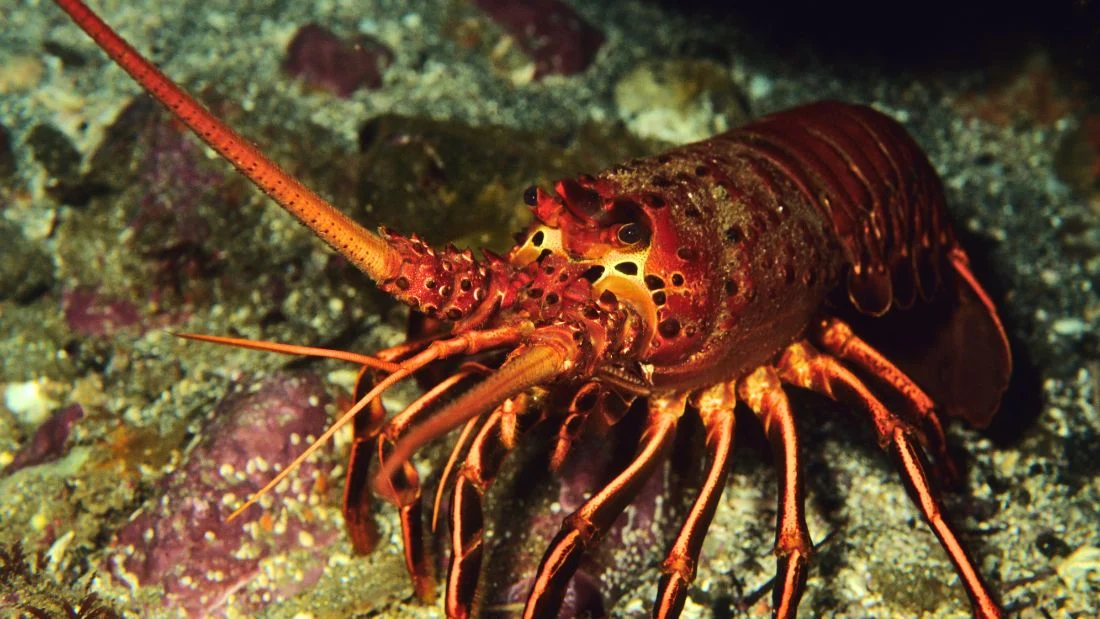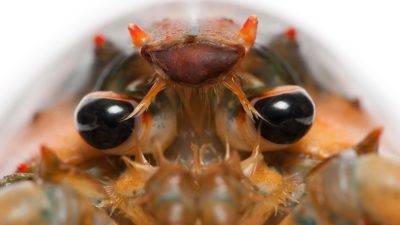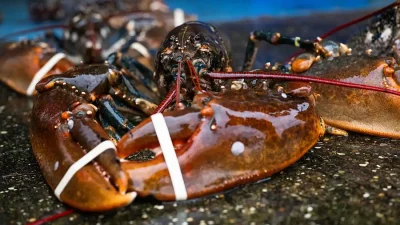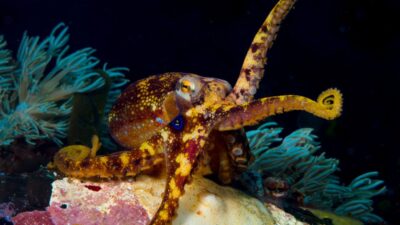Lobsters: Sentient, Sensitive and Sacrificed

For centuries, lobsters have been treated as little more than seafood – hauled from the ocean, bound, stacked and boiled alive. Their suffering has been disregarded for convenience, their pain denied or dismissed in the name of fine dining.
Despite Britain’s claims to uphold strong animal welfare standards, lobsters remain an industry afterthought. They lack even the most basic protections afforded to other sentient creatures trapped in the cycle of animal agriculture.
Science has long since confirmed that lobsters are not unfeeling. They can learn, remember, and, crucially, suffer. Unlike mammals or even fish, lobsters are biologically incapable of going into shock, meaning their pain is prolonged and acute. Yet the UK government continues to ignore their suffering, refusing to ban the most brutal aspects of their treatment.
Every year, over two million lobsters are hauled from UK waters and subjected to barbaric conditions before enduring an agonising death. The question is no longer if they suffer – but why we are still allowing this cruelty.
Hidden intelligence
Lobsters, often dismissed as primitive, are anything but. They have intricate nervous systems and are covered in thousands of microscopic sensory hairs, allowing them to detect the slightest environmental changes. They smell with their feet, recognise different foods using receptors in their claws, and demonstrate avoidance learning – an ability to remember and anticipate pain.
This capacity for learning and memory is comparable to that seen in other intelligent animals. They navigate vast underwater landscapes, travel up to 160 kilometres to find the perfect breeding grounds and respond to stress by seeking out safe spaces – suggesting an emotional as well as a physical response to distress.
Despite these remarkable traits, their treatment remains barbaric. When plunged into boiling water – a common method of slaughter – they struggle frantically for up to 45 seconds before dying. If they are dismembered while alive, their nervous system can remain active for up to an hour. Some chefs attempt to be humane by stabbing them through the head, unaware that lobsters have multiple nerve clusters, meaning a single stab does not kill them or stop their suffering.
If the same were done to a kitten, it would be considered an act of unthinkable cruelty – yet for lobsters, it is standard practice.
A grim trade
Lobsters are one of the UK’s most lucrative seafood exports, with over 3,300 tonnes caught in 2022 alone, valued at £52.5m. But behind these figures lies a grim reality.
Once pulled from the sea, lobsters are stacked in crates, often without water, and their claws tightly bound to prevent them from injuring one another. Before transport, they are starved for days to reduce waste contamination – adding to their suffering. When shipped overseas in oxygen-deprived containers, many suffocate in transit, while others drown in freshwater iceboxes as their gills collapse.
Reports from UK fishing vessels reveal disturbing conditions. Lobsters, already injured or dead, are tossed aside as waste, while live ones are handled with little regard. There is no real attempt to minimise suffering because no regulations require it. Unlike farmed land animals, whose slaughter is supposedly controlled, lobsters have no protection – not even welfare recommendations – when it comes to how they are killed.
The ramifications of the UK lobster industry extend beyond the suffering of individual crustaceans. Overfishing has disrupted entire marine ecosystems, triggering significant ecological imbalances. The depletion of natural lobster predators has paradoxically led to population surges, fostering cannibalistic behaviour. Meanwhile, the industry’s reliance on herring as bait exacerbates the strain on already vulnerable fish stocks, sacrificing millions of baitfish annually. This relentless demand not only perpetuates cruelty but also exacts a heavy toll on marine biodiversity and sustainability.
Science has spoken – but no one is listening
In November 2021, a landmark report from the London School of Economics (LSE) changed everything. Led by Dr Jonathan Birch, the study reviewed over 300 scientific papers, concluding that lobsters, crabs and octopuses are sentient beings. The evidence was overwhelming – lobsters avoid harmful stimuli, react protectively to injury and show clear signs of stress and suffering.
As a result, the UK government amended the Animal Welfare (Sentience) Act in 2022, legally recognising lobsters as sentient creatures for the first time. It was a historic moment – but ultimately an empty one.
Despite this recognition, the government refused to ban the cruellest aspect of lobster treatment: boiling alive. In a statement clearly designed to protect the seafood industry, officials reassured businesses that “existing practices will not be affected.” The law acknowledged that lobsters feel pain but did nothing to stop them from being tortured.
The public is ahead of the law
While the government remains indifferent, public opinion is shifting. A 2023 survey by the Animal Law Foundation revealed that the majority of Britons believe lobsters feel pain and that treating them inhumanely is unacceptable. The more people learn about the reality of the lobster trade, the more uncomfortable they become with it.
Just as public awareness forced reforms in factory farming, pressure is now mounting for change in how lobsters are handled and killed – yet the government continues to stall.
Britain falling behind
Other nations have already taken decisive action. New Zealand banned live boiling in 1999. In Reggio Emilia, Italy, boiling a lobster alive carries a €495 fine. These laws reflect a growing understanding that sentience must mean protection.
By contrast, the UK refuses to act, leaving lobsters to suffer as before.
A future that must change
The science is undeniable, and the evidence is overwhelming. The public wants change, while the government continues to ignore both them and the cruelty taking place. Recognising lobsters as sentient means nothing unless it is backed by real action.
The boiling of live lobsters must be banned – just as it has been in other countries. More humane slaughter methods, such as electrical stunning, must be made mandatory. The live postal trade, which subjects lobsters to days of suffering before they are slaughtered in home kitchens, must end.
Lobsters have survived for over 360 million years, outlasting mass extinctions, natural disasters and even the rise and fall of dinosaurs. But their greatest threat is now human indifference.
If Britain is to maintain its reputation as a nation that values animal welfare, it must extend that protection to all sentient beings – including those beneath the waves.
The most ethical choice, of course, is to leave lobsters in the sea where they belong. Viva! continues to campaign for an end to all animal suffering – and that starts with choosing not to eat them.







